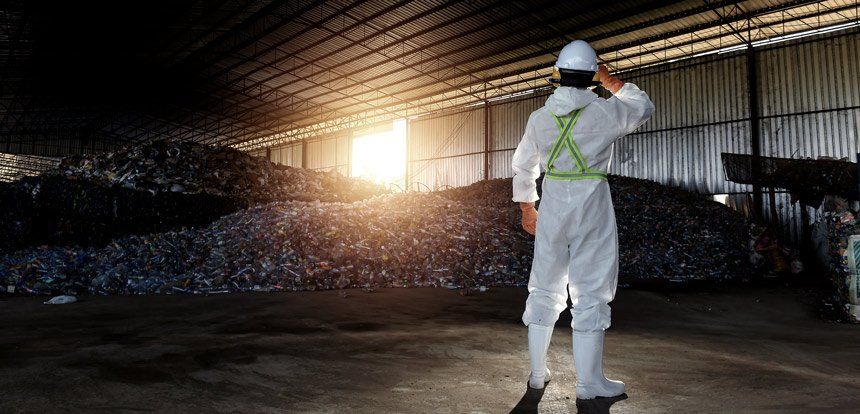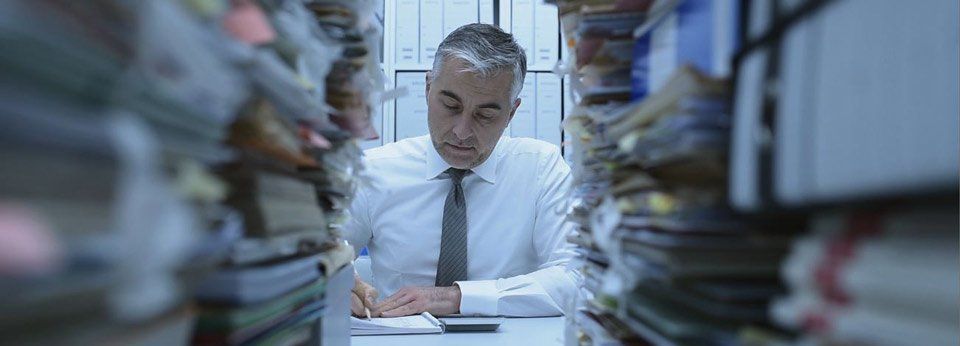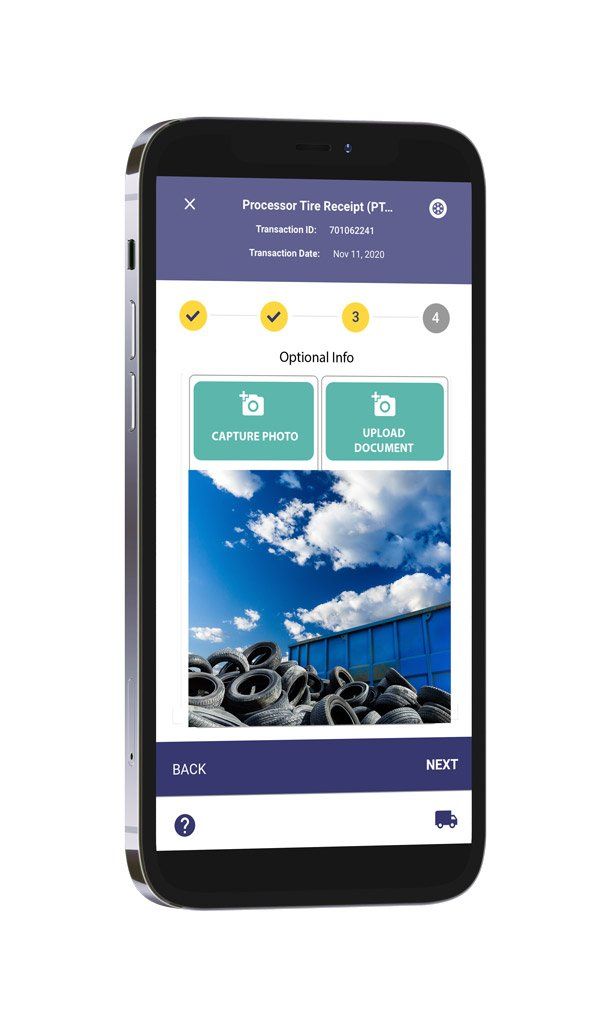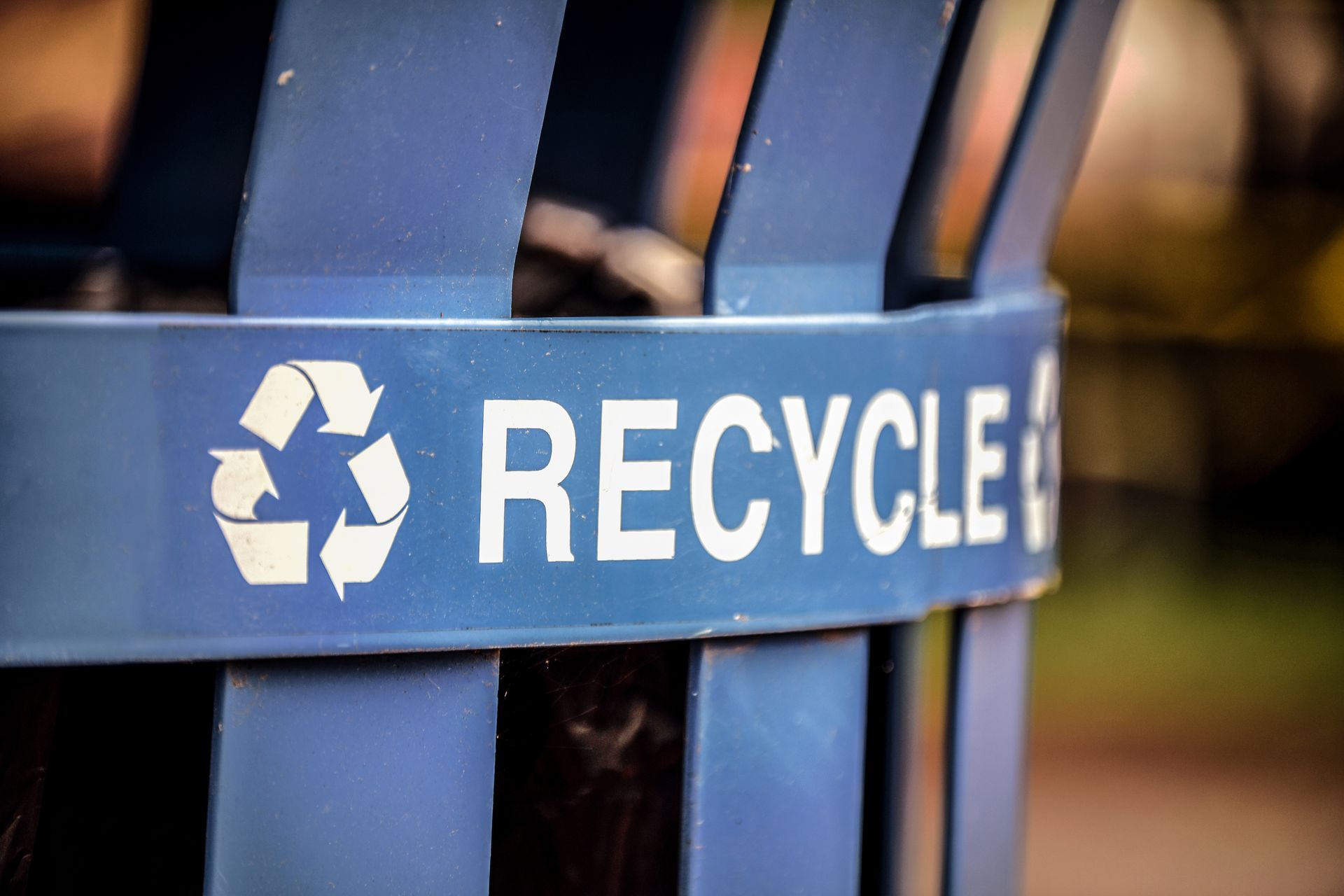MYTH 1: "Change is Bad for My Recycling Program"
This is the first installment of our eight-part myth-busting series. In this series, we explore some common myths in the recycling and waste management industry, explain how these myths came about and why they persist, and share some revolutionary insights that help program managers see things in a better way.

Change is undeniably scary, and it’s natural to resist it. We have a tendency to believe that any change, especially in the way we manage waste and recycling programs, is inherently bad – that it will come with complications, headaches, and costs that we can’t and shouldn’t tolerate.
Yet, we know, too, that change is inevitable. So why do we resist?
The reality is, these concerns aren’t completely unfounded. For many of us in the industry, change comes in the form of governmental, legislative, or regulatory compliance changes, which sometimes add complications to the way our processes work. And, in a rapidly changing industry, these changes often come without much warning, requiring us to quickly adapt.
On the other hand, you currently have a running program – and for better or worse, it’s performing at least somewhat effectively.
So why introduce changes to what’s already working?

Planned Changes
Firstly, it’s important to say here, the changes that we encourage all of our clients and the organizations we advise are not the same as unexpected changes that occur without (or with little) warning and disrupt waste and recycling program processes. Planned change makes all the difference.
Even more importantly, the changes we suggest making are ones that benefit your programs – completely revolutionizing the way you work while improving your day-to-day operations and the outcome of your efforts. These are not changes that make your work harder.
Finally, with a little bit of strategizing, you can implement changes that cause the least amount of disruption to your processes so waste and recycling activities can continue even as your operations get better.
But First...
Before we dive into the specifics of those changes, let’s discuss the first part of this myth – specifically, the idea that, if a recycling program is running and performing “well enough,” you needn’t make any changes. The myth that change is bad hinges on and persists because of this idea, so it’s important that we really take the time to understand what exactly the thinking is.
Does this sound like you?
Some program managers wonder, if my program is running fine, why rock the boat?
To this, we ask: how do you know your program is running fine?
In our experience, the recycling and waste management program managers who say this are facing a host of issues that are either undiagnosed or known but aren’t being dealt with – usually because the program managers are busy putting out other fires that are prioritized higher, and so "running fine" is good enough.
These issues are numerous and vary depending on the organization, but some common issues are:
- Using paper forms to track waste and recycling activities, like pick-ups and drop-offs. Mistakes, missing/illegible/incomplete forms, delays, and ridiculous amounts of paper are the result.
- Not having visibility on what’s currently happening in the field. Usually this means that the organization is using paper forms or outdated software to record activities, both of which come with delays, errors, and the potential for fraud.
- No easy way of seeing how you’re performing against your targets and goals. Most organizations use paper forms in combination with a data management tool, like Excel. Both of these introduce the potential for human error. They also mean that your analysis or KPI tracking has to be manually calculated, which takes time (not to mention, it may be based on faulty information). With looming deadlines and legislatively-mandated targets to be met, most organizations cannot afford the delay or the risk of error.
Don’t be alarmed if this sounds like your program. It’s quite common – and thankfully, there IS a solution. More on that later.
The High Cost of a “Good Enough” Recycling Program
Complicated as each of these issues is, though, they all ultimately boil down to one single issue.
Ultimately, what is the result of an incomplete or imperfectly operating program? Poor data.
When you don’t know exactly what is happening in your recycling program, when you can’t trust the information you’re getting from your activities to be 100% reliable, your program and the entire industry suffer. How?
Very simply: unreliable data coming in from “the field” (meaning, the people doing the actual work of collecting and processing recyclables and waste) means organizations are reporting on their activities unreliably, means legislation is built around faulty data, means we don’t know how well we’re actually moving towards a circular economy – and, in fact, we don’t even know what this industry is truly capable of.
And that’s just the high-level issue with unreliable data. There’s also a way that unreliable data affects the day-to-day work of program managers.
Let’s look at a concrete and common example.
If a recycling organization, for instance, knows they have to collect, haul, and process a certain tonnage of recyclables by December 31, they need to know continually throughout the year where they are against that goal so they can adjust and make sure they’re on track to meet their target. This is the reality for many of our recycling and waste management organizations.
It’s unfortunately all too common for organizations to struggle and scramble to figure out how they’re performing against their targets, goals, and KPIs, and it gets expensive (from both a time and cost perspective) to get the answer.
This is just one example, but as you can see, there are practical problems caused by poor, incomplete, unreliable, and unwieldy data. This is why a program that “could be better but is still running” is simply not “good enough.” These problems are making the work of those in the waste and recycling management industry harder, while also ultimately negatively impacting legislation and our ability to get to a zero-waste world.

Adapting to a New Way of Thinking
To confront this myth, we need a paradigm shift.
By shifting the way we think, we can stop fearing change – and instead start actively seeking changes that will help our programs do more, and better.
That new way of thinking starts with some careful self-evaluation. This helps us assess where we truly are today, what’s working and what isn’t, and how we can take the simple steps that lead to better-run programs and good data.
How Do You Know Your Program is Running “Well Enough”?
We’ve compiled some questions to help you start thinking about your program in a new way. These questions are by no means exhaustive, but we highly suggest pausing to consider each one carefully before moving on. Doing so can help you start the paradigm shift that leads to positive change.
1. Do you have confidence in your ability to track the flow of your materials easily and in real time?
The “real-time” component of this question is key, as delays in receiving data add complications and errors.
As well, when we ask “can you do this easily,” we really do mean easily. Compiling banker's boxes full of paper does not make tracking easy. If this is the approach you take, consider how a few positive changes might save you time and effort.
2. Are all your in-field activities visible to you right away?
Do you know activities are taking place as they happen (or immediately after they happen)? Or does it take you days, weeks, or months to reconcile the activities that took place with the data you have?
Really stop to consider how this affects your relationship with your data. Can you trust it to be consistently reliable at all times? If not, how confident are you in making business decisions based on that data?
3. Can you easily manage your relationships with your service providers?
These are also called “participants” in some programs, and refer to collectors, haulers, processors, generators, etc. (Different programs use different terms.) Is it easy to calculate payments or incentive rates based on different geographic locations or types of participants? Are there delays in payment because you receive their reports or activities late?
Each of these participants plays an important role in your process, and your relationship with them is crucial to the success of your program. If your processes are causing you to compromise on those relationships, it’s definitely time for some positive change.
4. Can you fully trust your data and rely on it to make major decisions for your business?
This is one of the most important questions to ask yourself. What safeguards do you have in place to avoid fraud, errors, and security breaches?
Where and how often in your process do these safeguards apply? That’s important, because if you’re not careful about getting uncompromised data right from the beginning - right as your participants are reporting on their work - you’ve already allowed uncertainty and unreliability into your process. This, of course, compromises your data.
If this sounds familiar, change is not only highly recommended – it's required.
5. Are you sure you’ll meet your performance or recovery targets for this month, quarter, or year?
How do you know? And how easy is it for you to get to an answer?

Excited for Change (Or At Least Open to It)? Simple Next Steps
Now that you’ve taken some time to evaluate your waste or recycling program and ask yourself some crucial questions, what’s next?
The first step is simply taking the time to understand the value in digitizing your program, especially if your current processes are entirely paper-reliant. (See? We promised the steps were simple.)
To many, “digitizing” sounds intimidating, costly, and time-consuming. It also sounds like “not my area of expertise.”
The reality is, digitizing saves you big-time – in both apparent and hidden time and money costs. And with the right solution, the disruption to your operations is minimal; a good partner will help you implement a new solution so that you can continue working through the transition.
Since the industry is constantly changing, legislation is being adopted across the globe at record speed, and businesses are growing rapidly, a digital solution for managing your program gives you the flexibility you need to adapt quickly despite change.
The second step is to subscribe to CYCLES now, so you can get even more insights into myths like this one and truth just behind the curtain.

About Diversys
Diversys is proud to have its roots in Ontario, Canada - a province widely recognized for its leadership in EPR and sustainability. Since 2019, we've been dedicated to creating innovative software solutions that drive progress toward a world without waste.
Our story is a testament to the power of hard work, customer loyalty, and big ideas. We are committed to empowering organizations with the waste recycling software solutions necessary for achieving a sustainable future. Our cutting-edge software platform is helping organizations achieve their ESG goals, meet reporting obligations, and improve operational efficiency for their recycling programs.
Our commitment to delivering world-class solutions that drive meaningful progress towards waste reduction and a more sustainable future is unwavering. Our team of industry experts is ready to help you navigate the rapidly-evolving waste management landscape as we progress toward a circular economy.
Knowledge Center




Knowledge Center




Knowledge Center


Subscribe to get updates.
DIVERSYS
LINKS

